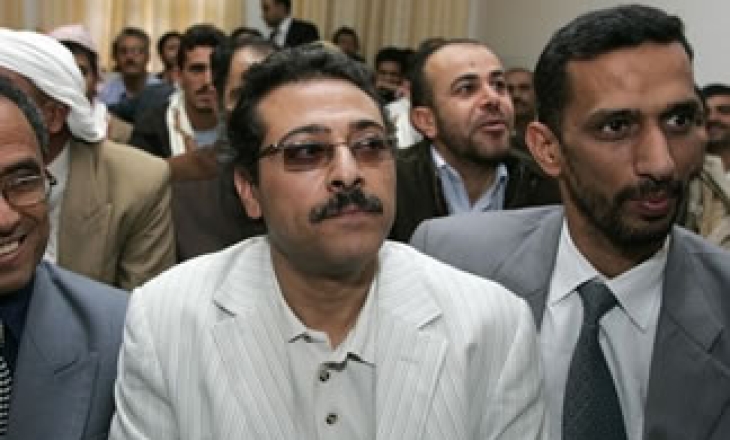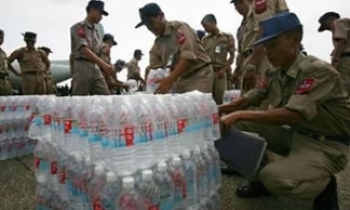Leading Yemen journalist Abdel Karim al-Khaiwani has been released from prison shortly after President Ali Abdullah Saleh granted him amnesty and ordered cancellation of his six-year jail sentence that was handed to him earlier for conspiring with anti-government rebels.
After leaving prison, al-Khaiwani told the News Yemen website that his release "is a victory for all Yemeni journalists and civil society organisations and human rights advocates." Al-Khaiwani denied that security authorities had wanted him to sign any obligation before leaving the prison, but said they had asked him to commit himself to law and the constitution. "I have assured them that I was always been committed to law and the constitution." he said.
“We are delighted by the news of al-Khaiwani’s release but we fear that the written undertaking he had to give to the prosecutor’s office could hang over him like a permanent threat and jeopardise his journalistic independence,” Paris-based Reporters sans Frontières (RSF) said.
A state security court in Yemen’s capital, Sana’a, on June 9 had sentenced al-Khaiwani to six years in prison for being an alleged member of a cell of anti-government rebels and conspiring to carry out attacks on government forces and civilians. Al-Khaiwani and 14 others were accused of being followers of rebel leader Abdel Malik al-Hawthi, whose family has fought against government forces in northwestern Yemen since 2004. Most of the other defendants received terms up to 10 years in jail and one received the death penalty.
The case against al-Khaiwani was widely viewed as reprisal for his unrelenting criticism of the government’s fight against the rebels, as well as his writing about government nepotism. Al-Khaiwani was charged in June 2007. The preliminary evidence against the journalist included photographs of rebels fighting in Saada, an interview and contact with a rebel leader, and news articles, including one written by al-Khaiwani that criticised President Saleh.
In subsequent court hearings, the court focused on two CDs allegedly given to al-Khaiwani by another convicted member of the al-Hawthi cell. The CDs were said to contain images of the fighting in Saada. The court also cited a monitored phone conversation between al-Khaiwani and a colleague in which the two discussed negotiations between the government and the rebels, Salam said.
In 2004, as editor of Al-Shoura, a website and former print weekly affiliated with the Popular Forces Union Party, al-Khaiwani was sentenced to a year in jail for incitement, insulting the president, publishing false news, and causing tribal and sectarian discrimination for his published criticisms of the government’s conduct in the fighting.
A month after al-Khaiwani was charged last June, several gunmen abducted him as he attempted to hail a taxi in Sana’a. The assailants threatened him, beat him, and tried to break his fingers. The gunmen also threatened to kill the journalist and his family if he wrote another word against the president or the country’s national unity.
An ARTICLE 19 report, 'Yemen: Freedom of Expression in Peril', earlier this year looked at the deteriorating free expression situation in Yemen over the past few years, especially after 9/11, when the authorities linked arms with the US in their war on terror and arrested suspected members of al Qaeda—and the journalists who covered the crackdown. Despite the ebb in the arrests, authorities continue to prosecute, imprison and even physically assault journalists.
Free expression is further at risk by a "weak and corrupt judiciary that fails to implement constitutional guarantees and redress the wrongs suffered by journalists." ARTICLE 19 pointed to the recent prosecutions of editors before the Special Criminal Court on Terrorism for terrorism-related charges where they could face the death penalty.
The government's restrictions of free expression are not limited to the media; women are often attacked in gender-based slur campaigns, says the report, released earlier this year. ARTICLE 19 recommends that Yemen adopt anti-discriminatory legislation to help "empower women to exercise their right of freedom of expression."










